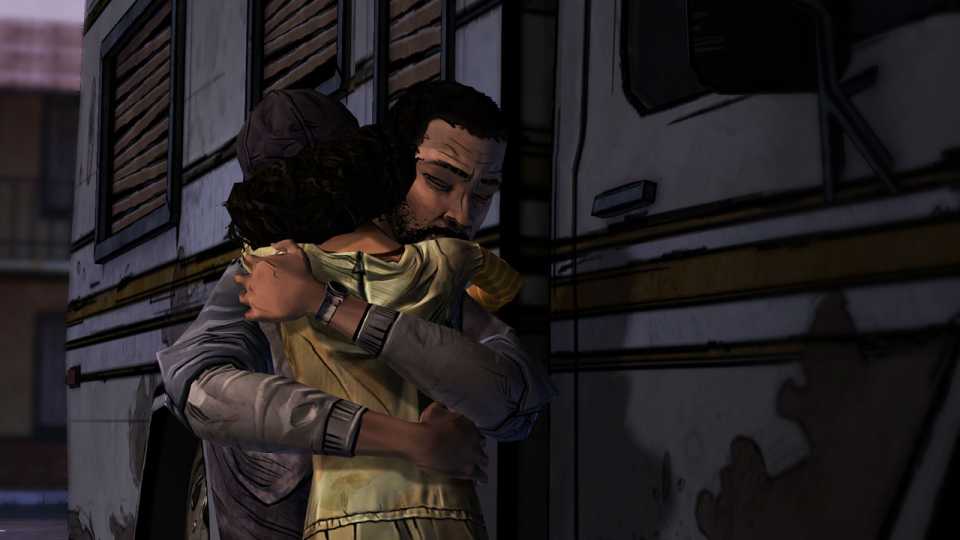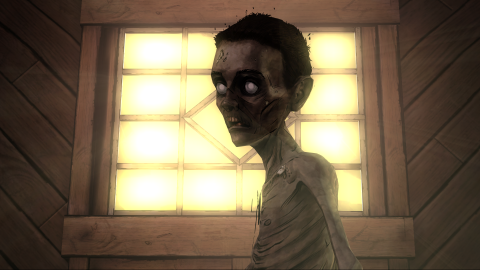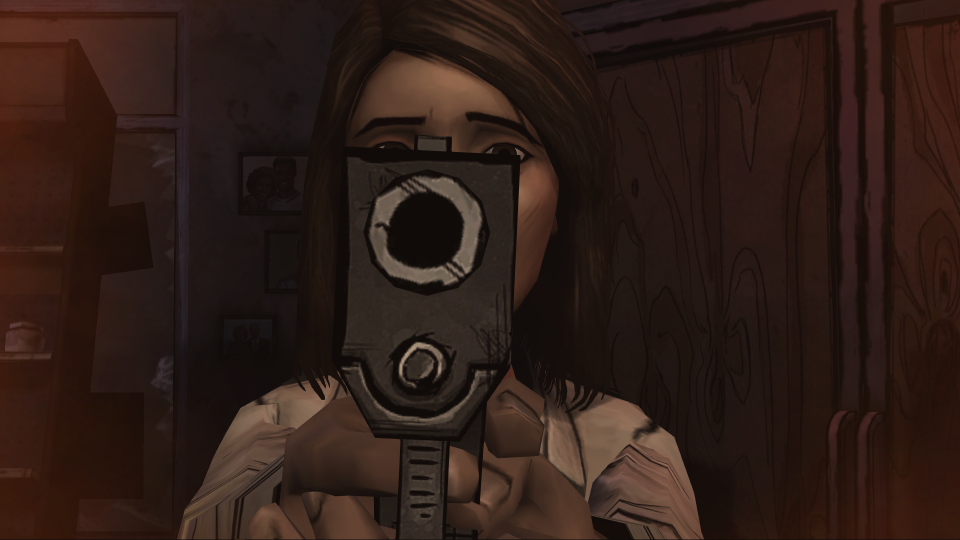Immersion, Player Agency, and the Many Moral Shades of Grey
By rjaylee 13 Comments

Kirk Hamilton wrote an interesting article on Kotaku about how the next Splinter Cell game would feature 'interrogation sequences', which in the previous game, Splinter Cell:Conviction, featured playable torture sequences as the title's main protagonist, Sam Fisher. It really got me thinking - although maybe not on the subject matter he intended. While he was trying to wrestle with the issue regarding how poor military intelligence in reality could be mirrored in video games, I was more intrigued to think about how player agency and choice has evolved since it has been more widely introduced into today's modern games, and the actual immersion it tries to create as a result from those choices.

While Kirk didn't really get the answer to the question he was actually trying to ask, I found it really interesting to hear Maxime Béland speak about how a player starts to "see the matrix" of decisions and starts to play the game's decision system rather than the actual morality play that is presented through the plot, which pretty much was the result of the "Paragon" and "Renegade" choice system of the Mass Effect games. This was fine for what it was back when the Mass Effect games were released, but the fact remains that Mass Effect was not the most adept at exploring morally grey areas. It was all very clear and symbolic throughout the entire game as to which choices would affect your playthrough, and the gameplay systems behind those decisions were reinforced to push the player along a relatively singular path to experience. Maybe you didn't really know the actual plot outcome of each Paragon or Renegade decision in Mass Effect, but you generally always had a good idea of which decisions were related to either associated path.
Having played Splinter Cell: Conviction previously, I can start to understand Béland as he tries to explain these "moral grey areas", even when there is not an explicit player choice given to the player. Sure, Splinter Cell: Conviction had some flaws as a video game, and your level of immersion may vary, but I was still able to put myself into Sam Fisher's shoes, as the game outright throws into your face as to what has happened and what your motives should be. My daughter was murdered. I need to find out who did it and why at any cost, even if that meant smashing some mercenary guy's head into a urinal and bathroom mirror for that information.

Yes, torture for any reason is gross, disgusting, and also dark part of American history in the wake of 9/11 - but I had to ask myself, did I carry on and enact the torture sequences simply because the game is commanding an instruction? Or did I do this because I actually wanted to get the information I need to avenge my daughter's death? At the time, I was immersed enough to actually believe it was for the latter. I wanted satisfactory justice for the injustices. But realistically speaking, does that really make it any better? Does my qualified immersion into the plot as Sam Fisher in his situation, out-qualify the distasteful act of torture? These are legitimate questions to be asked.
Be mindful - I'm not asking whether or not I would myself, force and act of torture upon another living being. I never would, and like any sane person, I recognize the line of reality vs. fiction no matter the media I am consuming; even if the media vehicle itself is putting me behind the trigger of the act. I am in Sam Fisher's shoes, but only through empathy, I am feeling what he feels. It's still simply a video game.
In more recent game releases, I think it's relatively safe to say that one of the most powerful examples of this kind of emotional exploration into "moral grey areas" is The Walking Dead by Telltale Games. Unlike the Mass Effect Franchise, no option is perfectly labelled blue or red for Lee Everett and Clementine. No situation can offer the perfect solution to put you down the perfect path. Thanks to the highly-acclaimed and superb writing of the series, Telltale allowed us to take our focus away from "the matrix of decisions", but instead focus on the actual situation and events that are presented.

I don't like saying it because it's a terrible trope to say, but if you didn't put yourself completely into Lee Everett's shoes in The Walking Dead, you were kind of playing this game incorrectly, for the lack of a better term. As coarse as a statement this is to make, I understand this is not necessarily the fault of the player if their interests are not fully captured. But without this, a player would never be able to fully lower their emotional walls to succumb, immerse, and wholly put themselves into Lee Everett as he journeys with Clementine through the zombie apocalypse. Simply put, If you couldn't get to that level of immersion, then your own personal morality may have never been fully realized through Lee either, meaning your personal morality probably wasn't a strong factor in The Walking Dead's player agency and choices for how you handled The Walking Dead's morally grey-area events and dialogue. Rather than projecting your own personal morality into Lee Everett's decisions, you were alternatively fulfilling an ideal vision for your version of Lee Everett, to the best you possibly could as the events unfold in front of him.
If you couldn't put yourself completely into Lee's shoes with your decisions being a reflection of your own morality, you more or less had the same experience I had when I played as Sam Fisher in Splinter Cell: Conviction, where grey-areas are explored only as a spectator through the actions of a virtual character, as opposed to the virtual character being closer to an avatar-like depiction of yourself. By immersing myself as deeply into The Walking Dead as I did, it truly multiplied and magnified the level of emotional connectivity I could potentially have to the characters themselves, living through the many morality plays that The Walking Dead had to offer, placing the results and ramifications of those events closer to my heart. This wasn't your typical fiction anymore. It became a mindful experience through the perspective of another, with a legitimate vehicle to drive a large piece of your own personality.

By virtue of Kirk Hamilton's article, I came to the realization that yes, a game like Splinter Cell: Conviction can be a really great venue in giving a player introspective about different kinds of issues through experiences of varying levels of morality. It puts the player into a position to be legitimately asked questions regarding it's morally grey-areas. But looking upon a tremendous game like The Walking Dead that offers the perfect vehicle for player agency and choice, it doesn't just ask you questions about morality - it forces you to answer them. In my mind, that is the true power of creating emotionally-conscious player agency in video games today.
Sure, in regards to The Walking Dead, many people mention that in the end that things never resolve any differently for Lee and Clementine, no matter what choices you made. I still don't believe that was the point, however. How I emotionally felt about leaving Clementine behind in the zombie apocalypse was a unique and personal conclusion in itself, completely regardless of the fact that what actually happens in the end is the same for everyone else.
Often, we forget that video games are not always about the destination's end; but in fact, it is completely about the journey and the ride of how we got there.
If you find my ranting to be somewhat thoughtful, come on over for some milk and cookies on my personal blog at http://thedevilshaircut.wordpress.com/, or follow me on Twitter.
